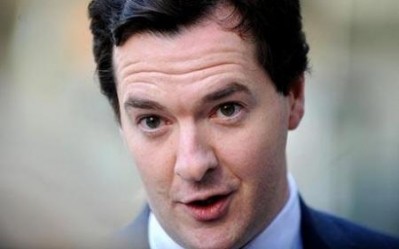Special feature
ELECTION SPECIAL: The food industry wish list...

INVEST IN SKILLS AND TRAINING
David Williams, chief executive, Butt Foods (pictured)
“I want a government that will support the development of a vibrant, high-tech and sustainable food manufacturing sector. I would also like the government to commit to improving skills and knowledge by getting universities to work with SMEs to get great technology and science into the industry.
"I’d also like it to do more to encourage college students to train at SMEs by raising funding levels for assisting SMEs over larger companies and switch from funding lower levels of competency training (such as Train to Gain and NVQ levels one and two), to demand-led training at a higher level that really adds value to a smaller food business.
"I’d like to see a government that reduces regulation and has fewer but more simple schemes for SMEs. For example, research and development tax credits need to be simpler and more widely taken up.
"Finally, I’d like a government that understands that diet, lifestyle, exercise and our culture all need changing to reduce obesity in conjunction rather than individually. And one that listens and consults. That's it!”
TACKLE INFLATION
James Lambert, chief executive, R&R Ice Cream
“I believe that we will see food inflation rising by anything between 3-8% over the next year and the only thing that can deal with this is a strong pound. This is the first challenge the in-coming government will have to deal with.
"In our sector some packaging costs – particularly cardboard – have risen by up to 20% and there have also been significant increases in commodity prices. Sugar, as well as both vegetable and dairy fats, have also gone up. The only item that has remained stable so far is milk.”
CAPITAL GAINS TAX RELIEF
Ian Affleck, chairman, York House Meat Products (meat)
“Firstly, we subscribe to the view that a hung parliament would be hugely detrimental to the economy, most likely causing sterling to devalue yet again, and quite possibly causing base rates to rise, both of which would be very bad news for our business, as we are a large importer of EU raw materials.
"In relation to other policy issues, we certainly agree that the planned increase in national insurance is simply increasing our employment costs, which again is detrimental, so any move to avoid at least part of that increase is welcome.
"Any combination of a Labour or Lib Dem administration is also very likely to continue or even further expand the red tape burden on business, and we see that prospect as also very bad news. Perversely, the only positive initiative to come from Labour (probably ever), has been to double the entrepreneurs’ capital gains tax lifetime relief to £2m, which it seems the other parties are now likely to also adopt.”
COUNTRY-OF-ORIGIN LABELLING FOR DAIRY
Mark Allen, chief executive, Dairy Crest
“We believe the Food Standards Agency (FSA) should be brought under parliamentary control and that its message should be less negative about dairy. We recognise that dairy products contain saturated fat and manufacture some of the best reduced-fat alternatives available.
"However, we are concerned that the FSA and other government bodies focus on negative food constituents whilst positive nutritional messages are ignored.
"We do not want the government to promote an anti-livestock agenda as put forward by some NGOs. The dairy industry is aware that climate change is important and Dairy Crest has contributed to Dairy UK’s Milk Roadmap, which has set industry targets.
"We would like government to force all dairy processors to state where their products were originally manufactured. Currently, imported dairy products can be given UK health marks and we’d like that to stop. We need a government that will champion dairy farmers and manufacturers.”
MORE HELP FOR EXPORTERS
Preet Grewal, co-founder, Eat Natural
“I think more help with export would be great. Financially of course but also with resources, such as more technical support with respect to language translation and legal compliance on packaging; improved fact files on routes to market for key industries would be good to start with. I feel that support in this area is limited at present and yet it counts so much towards the benefit of the country.”
FREEZE THE MINIMUM WAGE…AND CUT THE QUANGOS
Steve Pearce, md, Southover Foods (prepared meat products)
"I’d like to see a government that gives employers equal powers to employees, and protects employers from long-term sick and unlimited parental leave. I’d also like to see a freeze in holiday entitlement at 28-days (including bank holidays) and a freeze in the minimum wage at £5.90. It’s enough.
"The government should also protect us from Europe outlawing our working time agreement and opt out. It should also strip out the quangos, sack them all. Above all it should stop penalising SMEs (small and medium-size enterprises) because we’re soft targets. And finally, boil my head in public....it would be less painful than this death of a thousand-Euro-bureaucratic cuts....”
CUT PUBLIC SECTOR EXPENDITURE
Clive Frampton, chairman, Framptons (egg products, contract drinks manufacture)
“Politicians seem unable to understand how our grossly over-expanded public sector is funded.The public services are totally funded by commercial businesses through direct taxes and by the taxes paid by their employees.The shortfall then has to be borrowed, mainly from overseas investors.The next government must strongly cut public sector expenditure and reduce the fiscal and legislative pressures on companies.
"We need to lower our production and operational costs and this will help export sales and limit imports. This can be achieved by a government which is prepared to take a common sense attitude to the unsustainable economic structure we have created over many years. We need a government that will take tough and unpopular but necessary actions rather than one that will only do what it thinks that voters might accept.
"Let's hope reality clicks in and that we will have a new government that will support and work closely with the business community to rebalance our failing economic structure.”
A WORKING MAJORITY FOR THE TORIES
Angus Allan, managing director, Indulgence Patisserie
“My wish list is as follows: Not Gordon Brown! Not Nick Clegg! A Conservative Government with a working majority that can start to reverse the damage done to UK plc over the past 13 years by an incompetent and corrupt Labour Party.”
CUT DUTY ON CIDER
Chris Newall, business development director, Universal Beverages (contract drinks manufacturer)
“There has been a proposed increase in cider duty of 10% above the inflation rate, creating a rise of over 13%. Clearly this has an adverse effect on the whole cider industry. We are located in a rural area and mills over a 100,000t of apples each year as well as producing ciders and other fruit beverages for a range of customers.
"We see first-hand, indeed are part of the huge amount of investment made within the agricultural economy by the cider industry, and are concerned that future investment and, ultimately, the jobs this creates might be threatened by large, step change rises in duty. We therefore hope that this is addressed in the new parliament.”
BETTER ENFORCEMENT
Kaarin Goodburn, secretary general, Chilled Food Association
“We have a hygiene-focused wish list for the new government. It should make best use of enforcement resource and make enforcement count, and recognise best practice and relevant certifications in inspection frequency. It should also target high-risk premises such as those supplying hospital food.”
HELP MANUFACTURERS ACCESS CREDIT INSURANCE… AND MAKE FIRMS PAY BILLS IN 30 DAYS
Brian Young, director general, British Frozen Food Federation
“The food industry should be given the respect it merits and have one point of contact rather than the multi-various points we have now through the Department for Environment, Food & Rural Affairs (DEFRA), the FSA, the Department of Health, the School Food Trust, and so on. I would also like to see health and nutrition to be considered in the round along with exercise, lifestyle and diet. Demonising of foods should be replaced by some understanding of what will drive positive behavioural change.
"As for legislation, I’d like to see the devolved countries and the UK agree to one set of regulations, always. Government should also make credit insurance available, or even better make all companies legally bound to pay debts within 30 days. Government should also positively promote frozen to reduce food waste, maximise nature’s output and make food affordable for all.”
MORATORIUM ON NEW FOOD LEGISLATION
Clare Cheney, director general, Provision Trade Federation (meat, dairy)
“I would like the government to make a concerted effort at EU level to obtain a moratorium on any new food legislation, on the grounds that there is already enough. Apart from reducing the burden on business, this would put less strain on policy makers in FSA and DEFRA whose resources are likely to be cut after the election.”
A MORE ACCOUNTABLE FSA
Jill Ardagh, director general, British Soft Drinks Association
“I’d like to see greater recognition of the importance of the UK food and drink manufacturing industry and its economic, strategic and social role. I’d also like to see:
- economic policies which restore consumer confidence in the economy;
- fiscal policies that are fair and enable industry to invest in product development and low carbon technologies;
- coherency in policy-making across Whitehall, particularly the coordination of nutrition-related policies with the government’s drive to sustainability;
- evidence-based policy and legislation;
- effective risk communication by the FSA, particularly on food safety issues and new technologies;
- greater accountability of the FSA and genuine partnership with industry;
- voluntary initiatives which are industry-led and not imposed by government;
- a cohesive delivery plan for tackling climate change long-term so that industry can plan and invest;
- the government needs to promote an infrastructure and measures that encourage higher rates of collection and domestic recycling;
- a review of legislation to identify where it can be simplified and made more cost-effective.”
JOINED UP COMMITMENT TO IMPROVING TRANSPORT INFRASTRUCTURE
Stewart Oades, president, Freight Transport Association
“Labour’s pledge to tackle congestion with hard shoulder running is welcome, but is no substitute for meaningful, long-term investment in our road infrastructure. Similarly, the Fair Fuel Stabiliser, which will link fuel duty levels with bulk oil prices, is an intriguing proposition, but despite its apparent commitment to a ‘modern transport network’, the lack of an explicit nod to the logistics sector does not engender much faith in the Tory manifesto either.
"Meanwhile the Lib Dem proposal to create a UK Infrastructure Bank is, again, a nice idea, but only if investment in our crumbling infrastructure is guaranteed.”
"The three main political parties have between them weighed in on some vitally important areas affecting the logistics sector, from aviation tax and High Speed Rail, to a third runway at Heathrow and road pricing.
"However, a firm commitment to improving the UK’s entire transport infrastructure across road, rail, sea and aviation sectors with intelligent investment is noticeable by its absence. Holistic infrastructure investment is the only way to meet ongoing capacity and environmental challenges as, when it comes to the supply chain, we are really only as strong as our weakest link.”
SCRAP THE SUPERMARKET OMBUDSMAN
Stephen Robertson, Director General, British Retail Consortium
"The Tory pledge to scrap Labour’s proposed increase in national insurance contributions is a welcome step in the right direction but the entire increase planned from April 2011 should be scrapped. It is a tax on jobs that would add £220m to retailers' costs, making it more expensive for them to employ people, undermining their ability to maintain and create jobs and preventing their maximising their contribution to the recovery.
"Its pledge that for the first two years of a Conservative government any new business will pay no Employers’ National Insurance on the first 10 employees it hires during its first year is also a welcome step to assist new businesses as they start trading. Cutting the headline rate of corporation tax to 25p and the small companies' rate to 20p is also a positive move.
"But new legislation to 'crack down on down on drink- and drug-fuelled violence' [as proposed by the Tories] is not needed. There is plenty out there already, it just needs to be properly enforced. Irresponsible drinking is not about price, it's about culture, and retailers are actively engaged in changing attitudes through information and education. Meanwhile, proposals to prevent below-cost selling may clash with competition law.
"On the grocery ombudsman, why would any government want to intervene in a market that works effectively and delivers great value and choice for customers?
"As for Labour’s pledge to move towards a ‘zero waste' Britain, it is unnerving to see manifesto pledges to ban certain materials from landfill, when there has been no agreement that this is the most appropriate means to increase recycling rates.”
STOP TAKING FOOD FOR GRANTED
Melanie Leech, director general, Food and Drink Federation
“What do we want to see from a future government? Delivering a clearer, more coherent and consistent approach to food policy across departments would be a good start. We’d also like an appropriate regulatory environment here in the UK so that our industry can remain competitive – particularly against other European manufacturers.
"We have articulated 20 ways in which we think the next government could help to safeguard the future success of UK food and drink manufacturing. But we have a more basic demand; given our economic, strategic and social importance, we believe it's high time that government stopped taking our sector for granted.
"Our positive contribution should be recognised by policy makers – and we want a public commitment that government will in future support a successful food manufacturing industry as a national priority in its own right.”
HELP UK DAIRY COMPANIES COMPETE ON WORLD STAGE
Mark Allen, chairman, Dairy UK
“Government must recognise that dairying is suited to the UK’s climate and its productive capability is important to UK and global food security. Government should also follow through on the Competition Commission’s recommendations on a beefed up Grocery Suppliers’ Code of Practice.
"It should also work to maintain a level policy playing field in Europe, fight for the interests of the UK dairy industry and manage the process of market liberalisation to ensure that the industry has time to adapt, particularly in Northern Ireland.
"Meanwhile, the FSA should be placed under the responsibility of a government minister, to ensure it is fully accountable, while the commissioning of scientific research should be outsourced to a truly independent panel.”
HEALTHIER CHOICES FOR SHOPPERS AND NANO LABELLING
Sue Davies, chief policy advisor, Which?
“We have five priorities:
Healthier choices: Progress on making it easier to eat healthily needs to continue and should not be derailed (eg. consistent and clear labelling, reducing salt, saturated fat and sugar, responsible promotions and standards for foods in institutions).
Sustainable choices: There is a lot of agreement around the priorities in order to move towards more sustainable food. The momentum now needs to continue but with efforts stepped up, identifying best practice, and a greater focus on delivery.
Safety: Campylobacter rates in chicken need to be tackled, meat controls need improving, 'scores on the doors' needs rolling out further and consumers need reassurance that we understand the risks posed by new technologies such as nanotechnology.
Standards: Unacceptable and misleading practices, such as adding beef and pork proteins to chicken products, need to be tackled.
Meaningful choice: The EU food information regulations must be a priority, addressing consumers’ information needs from clearer country-of-origin to labelling of nano ingredients. We also need a genuine GM debate and consumer concerns about food from clones need to be addressed.”














